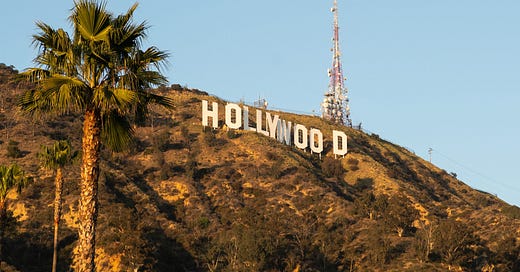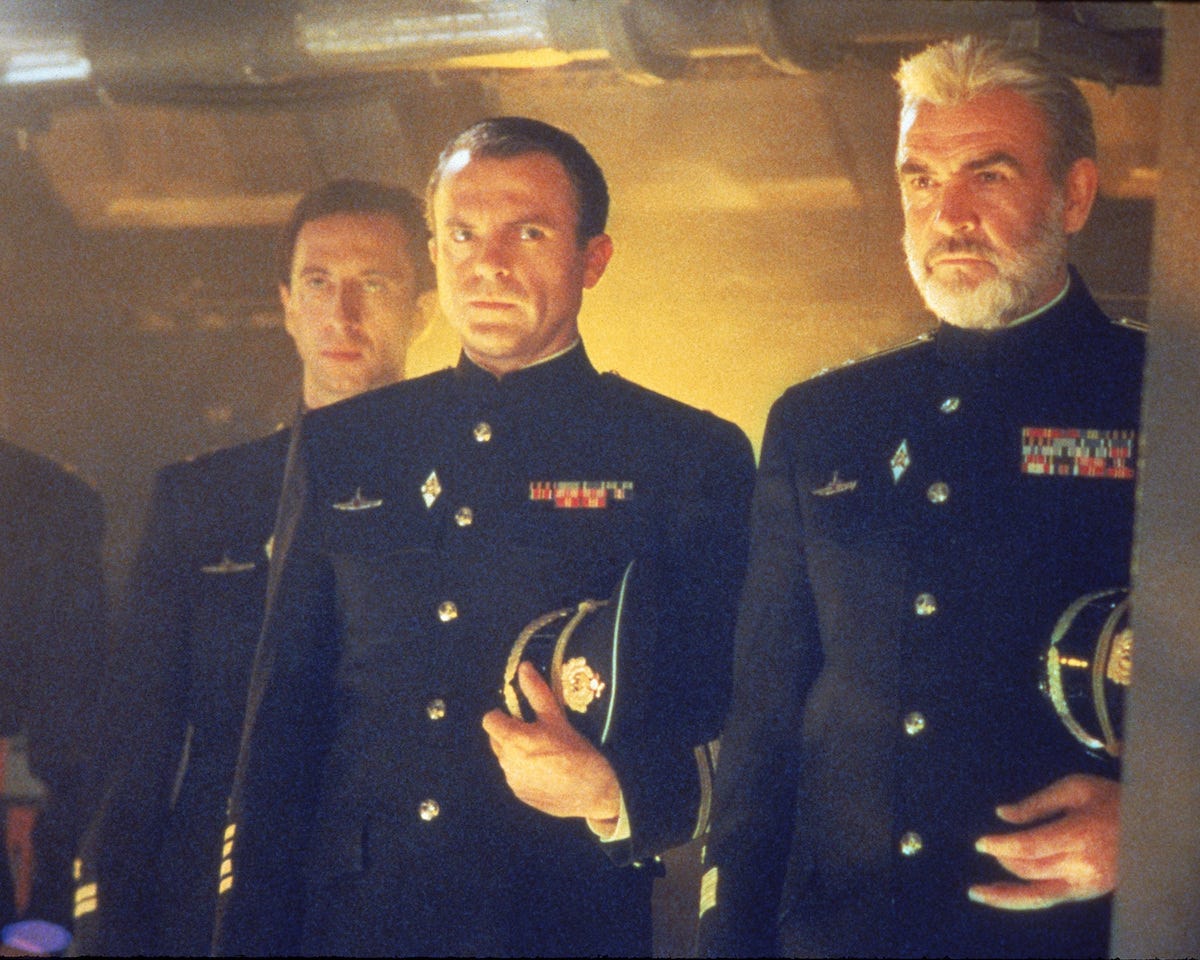The Future of Movies as ‘Content’
Plus: Another Cold War classic assigned!
In the New York Times today, Ross Douthat goes long on the future of movies—or, rather, “The Movies,” the larger concept of the motion picture as one of the defining American artforms that captured a large portion of the public’s attention and could shape and influence the culture in real ways. It’s a good, albeit mildly depressing, piece, and one you should read in full.
Ross looks at this decline through the lens of the Oscars and the reduction of the awards show from something that combined mass appeal and artistic pretensions into something smaller, more niche. In part, that’s because the movies the Oscars were created to celebrate—big Hollywood productions that showed off what America’s dream factory could do both commercially and artistically—have fallen out of favor with audiences.
“The Oscars are declining because the movies they were made to showcase have been slowly disappearing,” Ross writes. “The ideal Oscar nominee is a high-middlebrow movie, aspiring to real artistry and sometimes achieving it, that’s made to be watched on the big screen, with famous stars, vivid cinematography and a memorable score.” Once upon a time, movies like Gladiator and Braveheart were the coin of the Oscar realm; these days, it’s Moonlight and CODA. Thanks to the expense of advertising and the difficulty of generating ticket sales for movies aimed at adults, pictures like Moonlight and CODA are destined for a future on streaming services. (CODA, of course, is already there, having debuted on AppleTV+ after the Cupertino tech firm paid $25 million or so at Sundance for the festival darling.)
That means being watched at home. But a movie watched at home simply isn’t the same as a movie watched in a theater, for reasons I’ve prattled on about at length elsewhere. And besides, the format best-suited for home viewing is the television serial: a two-hour film has trouble competing with a six- or eight- or ten-hour season of television, because you can do more with character and more with story over that expanded timeframe. There’s a reason Netflix rose to dominance on the strength of binging massive amounts of TV over a short period of time.
Moving prestige pictures from theaters to streaming services implicitly devalues them by reducing them from “The Movies” to “some more content.” This is a point I was at least trying to get at in my Washington Post column this week by suggesting it’s time to move The Oscars off of ABC and onto Netflix, where prosaic concerns like “running time” aren’t really an issue and capturing niche audiences is the coin of the realm.
After all: If movies are just another piece of content then why not move them to the home of “content”?
I still love the Oscars even if general audiences have bailed on them. If you want to know who I think will win (as well as who I think should win) each of the major categories, check out this week’s bonus episode of ATMA, where Alyssa, Peter, and I are making our predictions. It’s for Bulwark+ members only, so if you want to listen you need to sign up today!
Links!
This week I reviewed The Lost City, which is the sort of movie that has to do well if The Movies are to have a future. It never would’ve been an Oscar movie, but once upon a time this is the sort of star-driven high-concept material that’d gross a solid $150M and help sell popcorn.
Reminder: If you live in New York City or Los Angeles, Everything Everywhere All at Once opens today. (It opens wider next week and the week after that.) It’s my favorite film of the year so far and I really hope you check it out. Here’s my rave review.
For a full breakdown of the best picture nominees, make sure to read Bill Ryan’s essay. Even if he’s wrong about Drive My Car, which I talked about on ATMA this week with Peter and Alyssa.
On the Bulwark Goes to Hollywood this week, I talked to the Los Angeles Times’s Ryan Faughnder about polling that shows almost no one has seen the two putative best-picture frontrunners, CODA and The Power of the Dog, as well as the uprising Disney has on its hands over the so-called “Don’t Say Gay” bill in Florida.
Scott Feinberg’s Brutally honest Oscar ballot series remains my favorite thing about Oscars season.
Interesting tidbit in this Erich Schwartzel story about Apple’s Oscar-season spending: “‘You find yourself with a short film made for $5,000 that is looking to campaign for $40,000,’ [two-time Oscar winner Kim] Magnusson said.”
I remain somewhat flummoxed by the discourse surrounding Licorice Pizza, a movie in which a character does an offensive Asian accent, the other characters in the film are made uncomfortable by it, and virtually all the critics acknowledge that Paul Thomas Anderson’s intent was to highlight the absurdity of the offensive accent—yet some folks are still demanding he beg forgiveness for critiquing orientalism? Perhaps one reason The Movies have declined is because the arguments about the ones we’re supposed to take seriously are so exhaustingly foolish.
Assigned Viewing: The Hunt for Red October (AMC+)
Continuing with our theme of Cold War assignments, it’s never a bad time to rewatch The Hunt for Red October. Jon Finkel highlighted the background of the source book here, and it’s amusing/interesting. I had no idea that Tom Clancy’s book had at least a kernel of truth to it, being based in part on a real-life mutiny.
But the whole thing is great, even if Alec Baldwin has never been my preferred Jack Ryan. (Harrison Ford, take your bow.) Really just a top-notch cast, from Sean Connery and Sam Neil to Baldwin and future senator Fred Thompson. And it serves as an eternal reminder that the United States’s greatest appeal is, simply, its commitment to freedom—of thought, sure, but also of movement. “No papers?” is just an immortal movie moment.







That no "No papers?" moment should be mainlined into the veins of any and all Americans who think this country somehow has it wrong on freedom and liberty and despots like Putin have it right. Nah, never mind. They'll never get, no matter what.
Good movie, though.
There were 2 things that always impressed me about The Hunt for Red October.
1) It's an excellent example of the movie being better than the book. There are two climactic arcs in the book, but the second one feels like just a regrind of the first, with no higher stakes. Condensing that down to just one real ending makes a lot of sense.
2) Lighting and staging. You get a visceral feel of darkness in the submarines - especially the Russians - but it's actually well lit. Not like a lot of recent movies where darkness is just darkness (which is both boring and frustrating to look at). The focused lights at floor level that illuminate the faces of the Russians from below are really striking. Ditto with the staging that shows the tightness of the control room and the vast size of the missile bay.